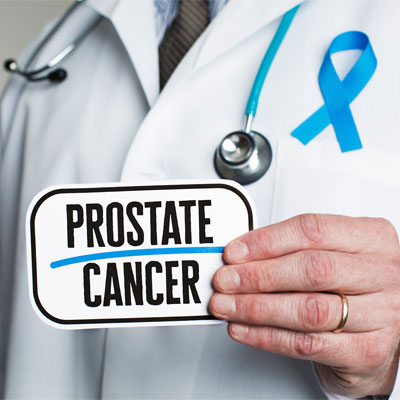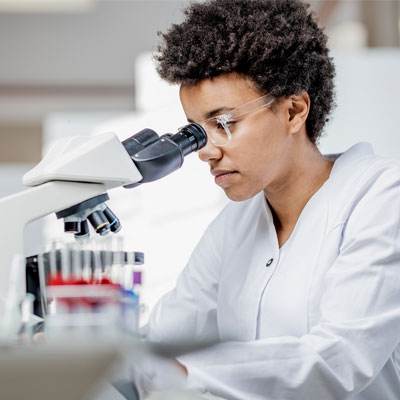How Does High Testosterone Lead to Prostate Cancer?
Contents

That is no longer the belief.
Studies in recent years have challenged that line of thought. Some of the research has even shown higher cancer risks in men with low testosterone. In a 2016 meta-analysis of twenty-six trials, prostate cancer was shown to be entirely unrelated to testosterone levels. Furthermore, TRT to treat testosterone deficiency did not raise PSA levels or prostate cancer development risk.
Does high testosterone lead to prostate cancer in younger men?
No, with so much current research showing no link between elevated testosterone levels and prostate cancer, there should be no concern. However, that does not give license to the illegal use of testosterone as a steroid for bodybuilding or strength increase. There may be many other risks associated with this action.
The incidence of prostate cancer increases as men get older and their production of testosterone declines.
Why Are There Contradictions in Research Showing a Testosterone Link to Prostate Cancer?
It seems that for every study showing the positive aspect of research, there is a contradictory study ready to dispute the claims. However, today the mounting evidence is on the positive side for testosterone. The research that caused us to ask does high testosterone cause prostate cancer is over 70 years old. A plethora of new reports should finally put this theory to rest.
According to research by Dr. Mohit Khera from Baylor College of Medicine in Houston TX, 12 studies point to low testosterone levels increasing the biopsy detection of prostate cancer with a higher tumor burden and significantly advanced pathologic stage. It is low testosterone, not high testosterone that increases prostate cancer risk.
Dr. Abraham Morgentaler, the Director of Men’s Health Boston, as well as the Associate Clinical Professor of Urology at Boston’s Harvard Medical School, is a leading expert on testosterone therapy and prostate cancer. His latest 2018 report continues to back up the safety of TRT for men with prostate cancer.
Instead of worrying how does high testosterone lead to prostate cancer, one’s concern is better focused on whether low testosterone levels are indicative of prostate cancer. It is recommended that men with Low T be checked for prostate cancer.
Prostate cancer research of over 70 years ago has now been shown to be invalid. Testosterone therapy does not increase prostate cancer risk.
What Is the Real Cause of Prostate Cancer?
As we negate the theory of is high testosterone linked to prostate cancer, we are left wondering what the cause. As with seemingly everything in science, one answer leads to multiple questions. Genetic mutations of genes are the cause of cancer cell growth.
Certain risk factors contribute to prostate cancer incidence, including:
- Aging – the older you get, the more your risk of developing prostate cancer increases. The most common time of diagnosis is for men in their mid-60s to mid-70s.
- Race – those most likely to experience more aggressive prostate cancer tumors are men of African-American descent. That does not, however, preclude Caucasian or Hispanic men from getting prostate cancer.
- Family History – as with breast cancer in females, a small percentage of prostate cancer incidence is more likely if another relative had it. Familial prostate cancers tend to develop earlier in life. The BRCA1, BRCA2, and HOXB13 genes have been linked to prostate and other forms of cancer. Gene mutations of BRCA2 and HOXB13 also have a higher risk of life-threatening prostate cancer.
- Diet – excessive intake of dairy and meat with low vegetable consumption can increase the risk.
- Lifestyle – lack of exercise and a sedentary lifestyle, obesity, exposure to toxic chemicals, and excessive alcohol intake also increase prostate cancer risk.
Rather than worrying about how does high testosterone lead to prostate cancer, it is better to focus on the factors that do matter. You may not be able to change aging or your race, but you can transition to a healthier diet and lifestyle.
Prostate cancer has multiple contributing factors – some that you can control.
Can High Testosterone Influence Prostate Cancer?
Is high testosterone linked to prostate cancer? Based on research released this year, the answer is no. Dr. Khera reports that studies of patients who received TRT to raise their testosterone levels had PSA levels that remained the same. Prostate saturation of testosterone does not change because testosterone levels change. The prostate itself can retain only a certain amount of testosterone. What did impact PSA levels was leuprolide which lowered PSA to zero. The prostate saturation level for most men is around 230 – 250 ng/dL of testosterone. Increasing testosterone levels higher than that to reverse symptoms of Low T did not impact PSA numbers.
With the concern over how does high testosterone lead to prostate cancer essentially behind us, it is time to focus on ways to lower one’s risk. We know that testosterone has protective benefits for the prostate. Any man with symptoms and a clinical diagnosis of low testosterone levels should use TRT for its protective benefits. Couple that with improving controllable lifestyle factors and regular health screenings to reduce the risk of prostate cancer.
Please contact our hormone clinic for further information.
With testosterone therapy no longer linked to prostate cancer, men can now safely receive treatment for Low T.
- Jason Michaud, MD, PhD, Alan Partin,, MD, PhD, Dr. Kevin L Billups, MD
- Dr. Ignacio San Francisco, Pablo A Rojas, Dr. William C. DeWolf, FACS, MD, Dr. Abraham Morgentaler, MD
- Luigi Mearini, MD, Alessandro Zucchi, Elisabetta Nunzi, Dr. Tommaso Villirillo, Vittorio Bini, Dr. Massimo Porena
Testosterone and prostate cancer: an evidence-based review of pathogenesis and oncologic risk
Low free testosterone predicts disease reclassification in men with prostate cancer undergoing active surveillance
Low serum testosterone levels are predictive of prostate cancer






